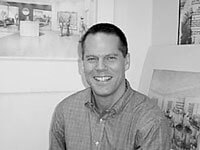Task Force study suggests families value contributions by gay, lesbian members
Lesbian, gay, bisexual, and transgender (LGBT) people over 50 have a slightly higher rate of caregiving for their parents, partners, and friends than their heterosexual counterparts. That’s one of the conclusions of a new joint study by the National Gay and Lesbian Task Force (NGLTF) Policy Institute, Pride Senior Network, and the Fordham University Graduate School of Social Service released Friday.
“Far from shying away from family responsibilities, this study shows that gay people are equally if not more devoted to family members and loved ones in need,” said Matt Forman, NGLTF’s executive director at the National Conference on Aging in the Lesbian, Gay Bisexual and Transgender Communities sponsored by Services and Advocacy for GLBT (SAGE) at New York University.
The study of 341 LGBT New Yorkers found that 46 percent had been caregivers at the time of the survey. AARP has found a 44 percent rate of caregiving for people over 50s in the general population. The gay survey was not random, however, and may not be reflective of gay people as a whole.
The study, “Caregiving Among Lesbian, Gay, bisexual, and Transgender New Yorkers,” found that “one-third of caregiving respondents said that their non-gay siblings expected more of them when it came to providing care for older relatives precisely because they were gay.”
About a quarter of the respondents were providing care for a blood relation, in some cases doing so while still in the closet, adding to the stress of the situation.
Twenty-four percent were providing care to a same-sex partner or friend. But the study noted that the Family and Medical Leave Act, Social Security, and Medicaid, “as well as most state family leave programs discriminate against same-sex partners who need to care for their loved ones.”
“Government agencies serving elders should target funding to the gay community,” said Marjorie Cantor, professor emeritus at Fordham and a principal investigator on the study, “just as they target ethnic minority populations.”
The idea that gay people—especially those who are single—provide more caregiving to elderly parents is not new. Rev. John McNeill, in his 1976 “The Church and the Homosexual,” argued that such devotion to caregiving was proof that his God had a plan in creating people gay. As the new study implies, however, while gay people do not shrink from caregiving of parents, sometimes non-gay siblings sometimes do, expecting gay and lesbian family members to pick up the slack while they devote themselves to their spouses and children.
The LGBT New Yorkers surveyed said the services they most needed were counseling (24 percent), retirement or assisted living communities (19 percent), visiting services (19 percent), and assistance with day-to-day tasks (14 percent). Forty-six percent of respondents were 50-59, 35 percent between 60 and 69, and 19 percent 70 or older. Fifty-two percent indicated they were single, 40 percent partnered.

































